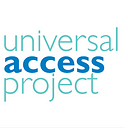The COVID-19 “Shadow Pandemic” of Gender-Based Violence

By Seema Jalan
An estimated four billion people globally have sheltered in place to halt the spread of the COVID-19 pandemic — an essential protective measure to flatten the curve of the virus and ease the burden on our health care systems and front line workers. For many, staying at home and physically distanced from our loved ones is challenging. But for some, it is dangerous.
One of the most pervasive and insidious forms of violence — that against girls and women — is now on the rise in what the UN has deemed a “shadow pandemic.” Confinement with abusers, increased fear and tension, and additional strains on health, security, and finances are brewing an additional disaster for women, leaving them with limited options. As global health systems come under strain, so do the judicial, security, and social systems designed to support women experiencing violence. Domestic violence shelters are at capacity or even closed and resources are being directed away from traditional modes of response in order to address the pandemic. Strict restrictions on movement further limit access to traditional support systems.
Reports of increased violence are popping up all over the globe. In some countries, reported cases have doubled. In France, reports of domestic violence have increased by 30 percent; in Cyprus and Singapore, helplines have seen an increase of calls of 30 percent and 33 percent, respectively; and in Argentina, emergency calls for domestic violence cases have increased 25 percent. And, in many countries around the world where such reporting systems do not exist or are not functioning, we may not know just how widespread this dual crisis is — in contexts where gender-based violence services have been disrupted, research shows steep drop-offs in girls and women being able to report and receive support for incidents of violence.
The situation will likely get worse. New data from UNFPA, the UN agency dedicated to reproductive health, estimates that six months of lockdown due to the COVID-19 pandemic could result in an additional 31 million cases of gender-based violence. In response to the rise in violence we have already seen during the pandemic — and in anticipation of more to come — the UN has called for all governments to ensure that plans to prevent and address gender-based violence are included in all national responses to COVID-19. This includes ensuring that shelters and helplines are categorized as essential services, and that governments dedicate resources to public messaging to increase awareness of these services.
Civil society is also advocating for concrete solutions: A coalition of more than 180 expert organizations have endorsed recommendations for the U.S. government to take action, including restoring funding for UNFPA. UNFPA has long been the UN lead in addressing gender-based violence in the 150 countries in which it works, including in humanitarian and complex emergencies. Now, it’s stepping up to meet the additional surge, and has prioritized ensuring girls and women have access to violence prevention and response services, such as temporary shelter, safe housing, and financial support, as part of its comprehensive response. The agency is providing food items to domestic violence shelters in Kosovo, and offering psychosocial care and counseling to violence survivors over phone, text message, and WhatsApp in Jordan. It’s ensuring women experiencing violence have access to reproductive health care and services in North Macedonia, and providing around-the-clock hotline support and referrals to shelters in Ukraine. UNFPA is also tapping its existing in-country networks including youth-led organizations, faith-based organizations, religious leaders, and local media to raise awareness about the increased risk of violence and what services are available. This is especially important as referral pathways shift during pandemic response.
This isn’t about women as victims. Women are instrumental in fighting the virus, and keeping the world afloat in the meantime. We make up more than half of all essential workers, according to The New York Times; We are nearly nine out of 10 nurses and nursing assistants, a majority of pharmacists, and two-thirds of grocery store checkout workers. We are doctors, policymakers, employers, social workers, health care workers, and utility workers. We work in law enforcement, transit and transportation, and farming and food processing. We are essential. Any pandemic response that is truly meant to support our health, safety and well-being must consider our needs for protection from and response to abuse and violence in the home.
Support UNFPA’s critical response to the needs of girls and women in the COVID-19 pandemic here.
Learn more about the Universal Access Project and get involved at www.universalaccessproject.org.
